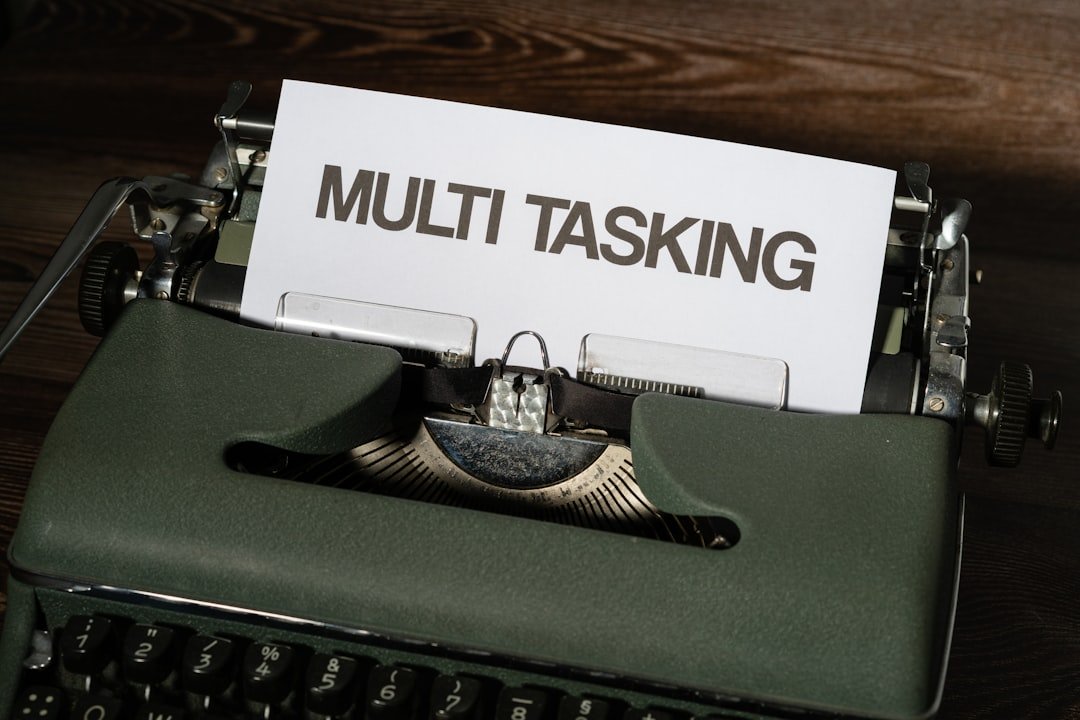I used to stare at my to-do list and just freeze.

The list wasn’t the problem. The problem was the overwhelming feeling of dread that came with it. Each task felt like a mountain. I’d escape into video games or mindless scrolling, telling myself I’d start “later.” Of course, later never came. That cycle of procrastination and guilt was exhausting. It kept me stuck for years.
If you’ve ever felt that way, I get it. I truly do. You’re not lazy or broken. You just need a better set of tools. Over the years, I clawed my way out of that pit. I learned how to handle tasks without feeling crushed. I want to share the strategies that actually worked for me. No complex theories. Just simple, practical steps you can start using today.
Get Your Head in the Game
Before you even start a task, how you think about it matters most. This is about setting yourself up for success instead of failure.
The Two-Minute Rule. If a task takes less than two minutes, do it immediately. Answering that email, putting a dish in the dishwasher, or taking out the trash. These tiny tasks build momentum and clear mental clutter.
Eat the Frog. This idea comes from a Mark Twain quote. It means you should tackle your biggest, most dreaded task first thing in the morning. Everything else feels easier afterward. Get it over with and the rest of your day is a downhill coast.
Break It Down. A huge task like “write a report” is intimidating. But “open a new document” isn’t. “Write the first paragraph” is manageable. When I needed to lose over 110 pounds, I didn’t focus on the giant number. I focused on taking a 10-minute walk. Then 15 minutes. Small, concrete steps are the secret to achieving big goals.
Pick Just Three. You don't need a list of 20 things. That’s a recipe for overwhelm. Every day, choose your top three most important tasks. If you get those three done, you’ve won the day. Anything else is a bonus.
Define "Done." What does finishing a task actually look like? Be specific. "Clean the kitchen" is vague. "Wipe counters, load the dishwasher, and sweep the floor" is a clear finish line. Knowing when you’re done prevents a task from stretching on forever.
The Art of Doing
Once your plan is clear, it’s time to act. This is where you roll up your sleeves and get to work without getting sidetracked.
Time Blocking. Don’t just list what you need to do. Schedule it. Put it on your calendar like a doctor's appointment. “9:00 AM – 10:00 AM: Work on Project X.” This tells your brain that this time is reserved for one thing only.
Work in Sprints. Our brains aren’t designed for eight straight hours of focused work. I found my sweet spot is 2–4 hours of truly deep, uninterrupted work in the morning. Work in focused bursts. Maybe 45 minutes of work followed by a 15-minute break to walk around or get a glass of water.
Eliminate Distractions. This is non-negotiable. Put your phone in another room or turn it completely off. Close unnecessary browser tabs. Create a space where you can focus without constant pings and notifications pulling you away.
Single-Tasking. Multitasking is a myth. It’s really just switching between tasks quickly and poorly. You lose focus and energy with every switch. Pick one thing. See it through to a stopping point. Then move to the next.
Use a "Done" List. At the end of the day, instead of looking at what’s left on your to-do list, write down everything you accomplished. This shifts your focus from what you failed to do to what you actually did. It's a huge motivation booster.
Keep the Fire Alive
Getting things done isn't just about a single productive day. It's about building habits that last without burning you out.
Celebrate Small Wins. Did you finish one of your three tasks? Great. Take a moment to acknowledge it. You don’t need a parade. Just a simple, “Good job. I did that.” This builds a positive feedback loop that makes you want to keep going.
Schedule Rest. Burnout is real. You cannot be productive if you are exhausted. Rest is not a reward. It is a requirement. Schedule breaks, time with family, and a proper end to your workday. Protect your downtime fiercely.
Daily Gratitude. My perspective on work and life changed when I started making this a priority. For me, this means a quiet moment of prayer each morning. I thank God for my health, my family, and the opportunity to face another day. It grounds me and reminds me that my tasks are not just chores but part of a bigger picture.
Forgive Yourself. Some days will be a wash. You'll feel unmotivated. You'll get nothing done. It happens to everyone. The key is not to let one bad day turn into a bad week. Forgive yourself, and remember that tomorrow is a new day with a clean slate.
Connect to Your "Why." Why are you even doing these tasks? Is it to provide for your family? To build something meaningful? To serve others? For me, my work is tied to my purpose and my faith. I want to honor God with the abilities He has given me. When a task feels like a grind, remembering your "why" can give you the strength to push through.
You don’t have to implement all 15 of these at once. That would be overwhelming, and we’re trying to fix that.
So, what’s one small thing you can do right now?
Don't wait. Just pick one strategy from this list and give it a try. The journey to a more productive and peaceful life starts with a single, simple step. You can do this.